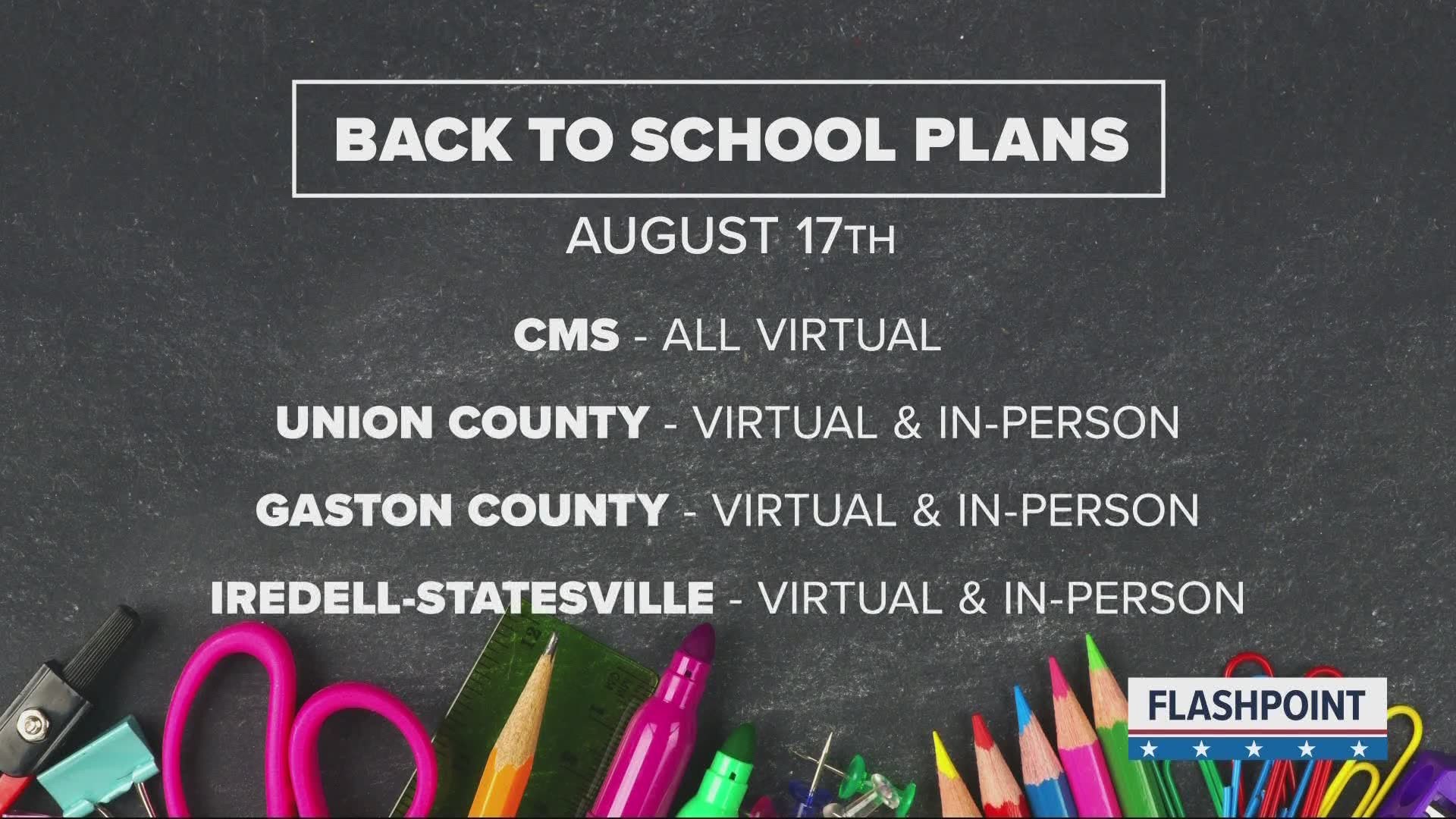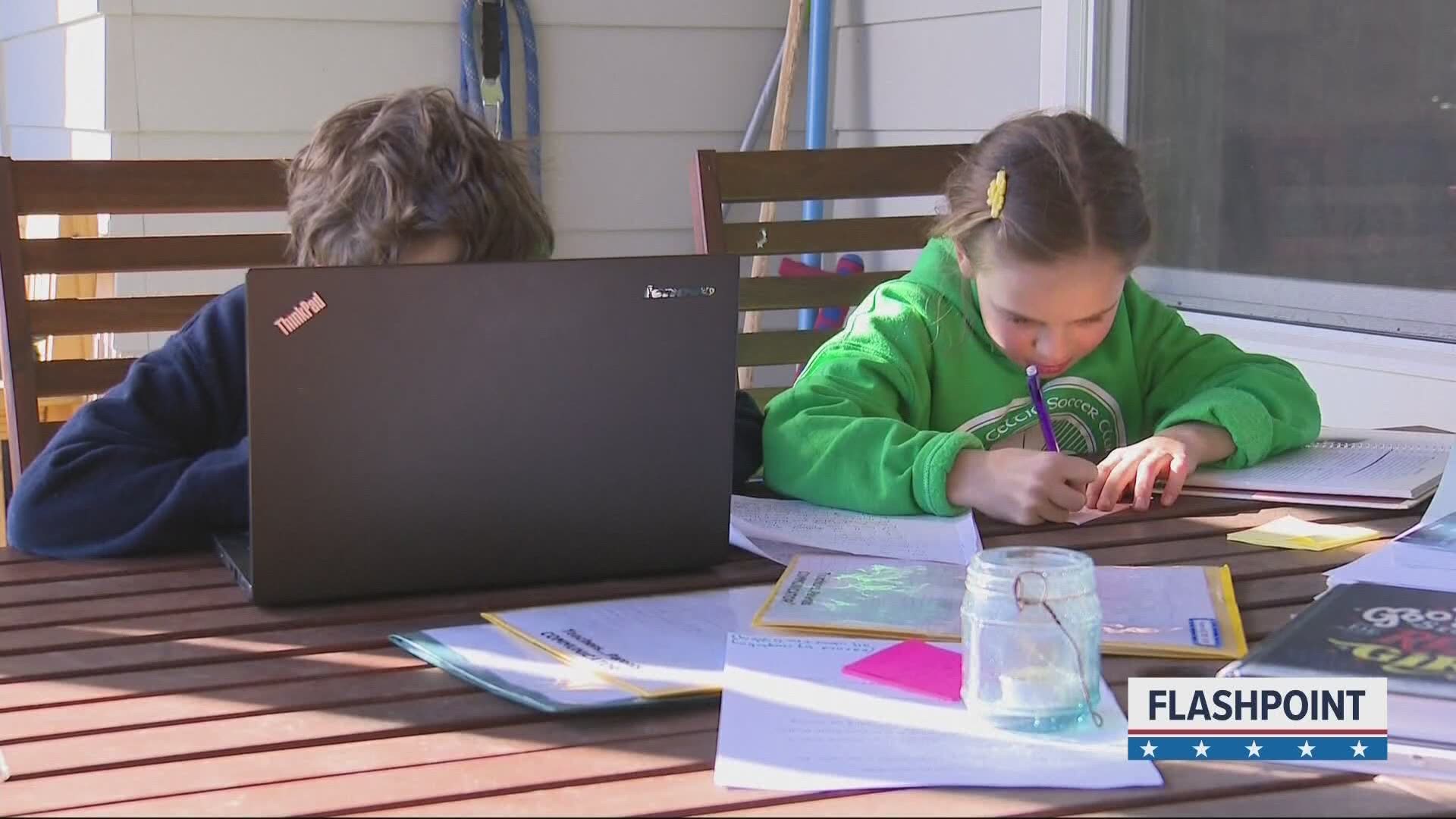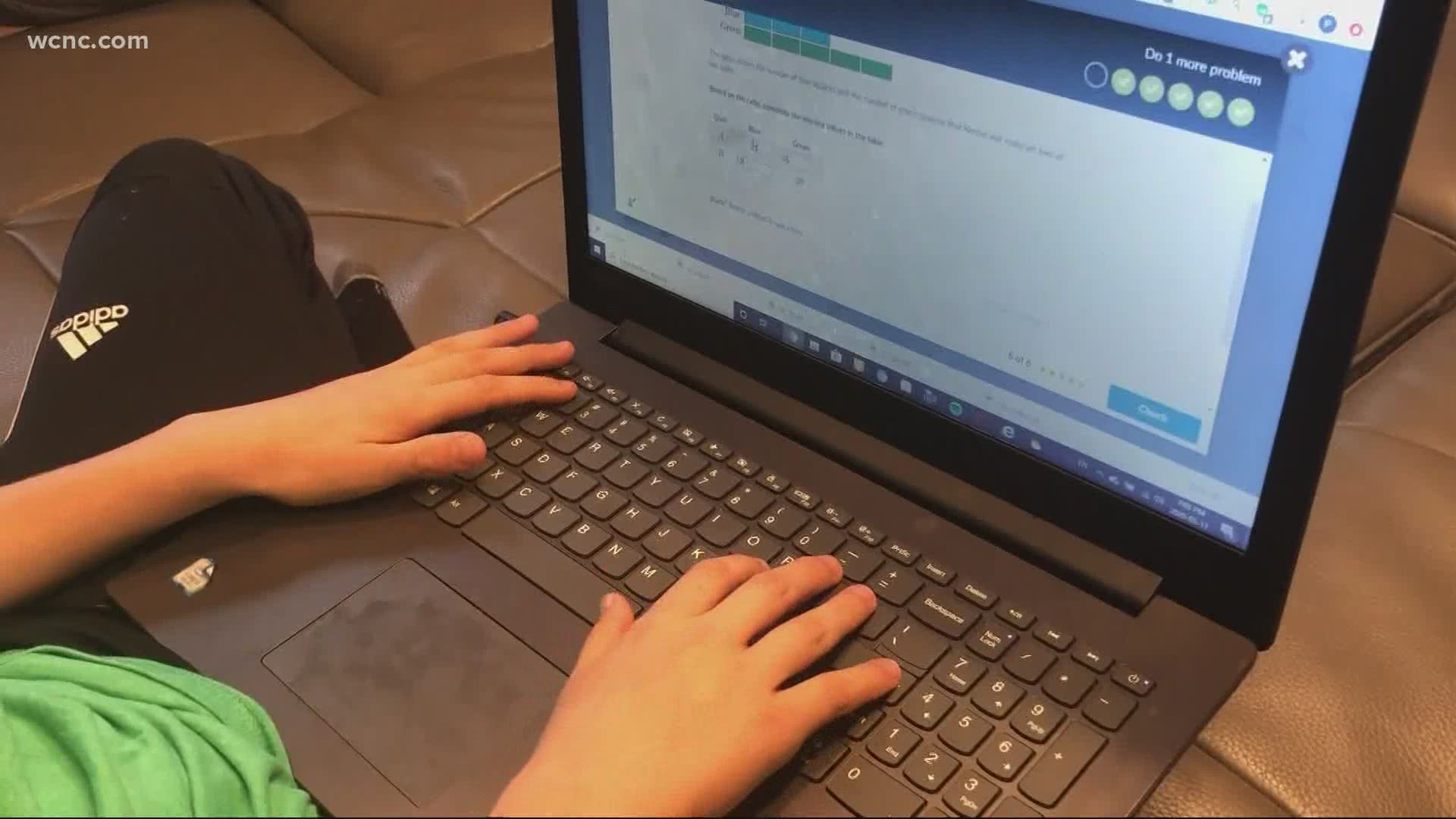Teachers, students and parents are less than 24-hours away from the start of school for CMS and several other school systems. The day before school kids are always full of nerves but this year is different.
August 17, when that alarm goes off, most students will simply walk into the kitchen to learn. Rather than boarding the bus and heading into a classroom full of new friends. However, CMS' superintendent is hopeful that kids will be back in school this year.
"Our goal is to have students back in the classroom as soon as it is safe to do so," said CMS Superintendent Earnest Winston.
It's creating a new type of nerves for families. After speaking to parents, getting a gauge of how parents feel on this day before school, teachers are also anxious about the start of the school year.
Justin Parmenter is a teacher of 7th grade English at Waddell Language Academy, he's also regional Director for North Carolina Association of Educators.
Parmenter said the goal is to accomplish the look of a normal school day in a virtual setting with zoom sessions.
"I don't think any of us are happy with this opening of school. It's tremendously stressful for everyone, on students, on teachers on parents...But the bottom line is its just not the right time to be going back to in-person instruction with how high the infection rate is in Mecklenburg County," said Parmenter.
Some CMS parents are against the district's decision to move to fully remote learning. Former Charlotte City Councilman and parent of three kids, Kenny Smith said its more beneficial for kids to be in the classroom learning.
However, as kids head back to school, data shows that more than 97,000 kids have tested positive for COVID-19 in the US during the last two weeks of July. That's according to a new review of state-level data by the American Academy of Pediatrics and Children's Hospital Association. The increase represents a 40 percent surge in the nation's cumulative total of child cases
Other parents are also concerned that this remote learning structure will negatively impact some children's futures. Community activist, Colette Forrest said CMS could have been better with determining where the shortage was with staff and equipment.
"They're going to drop out of the educational system, but drop into the prison system and the judicial system... When children get frustrated and they fall so far behind in the educational system they lose hope," said Forrest.



